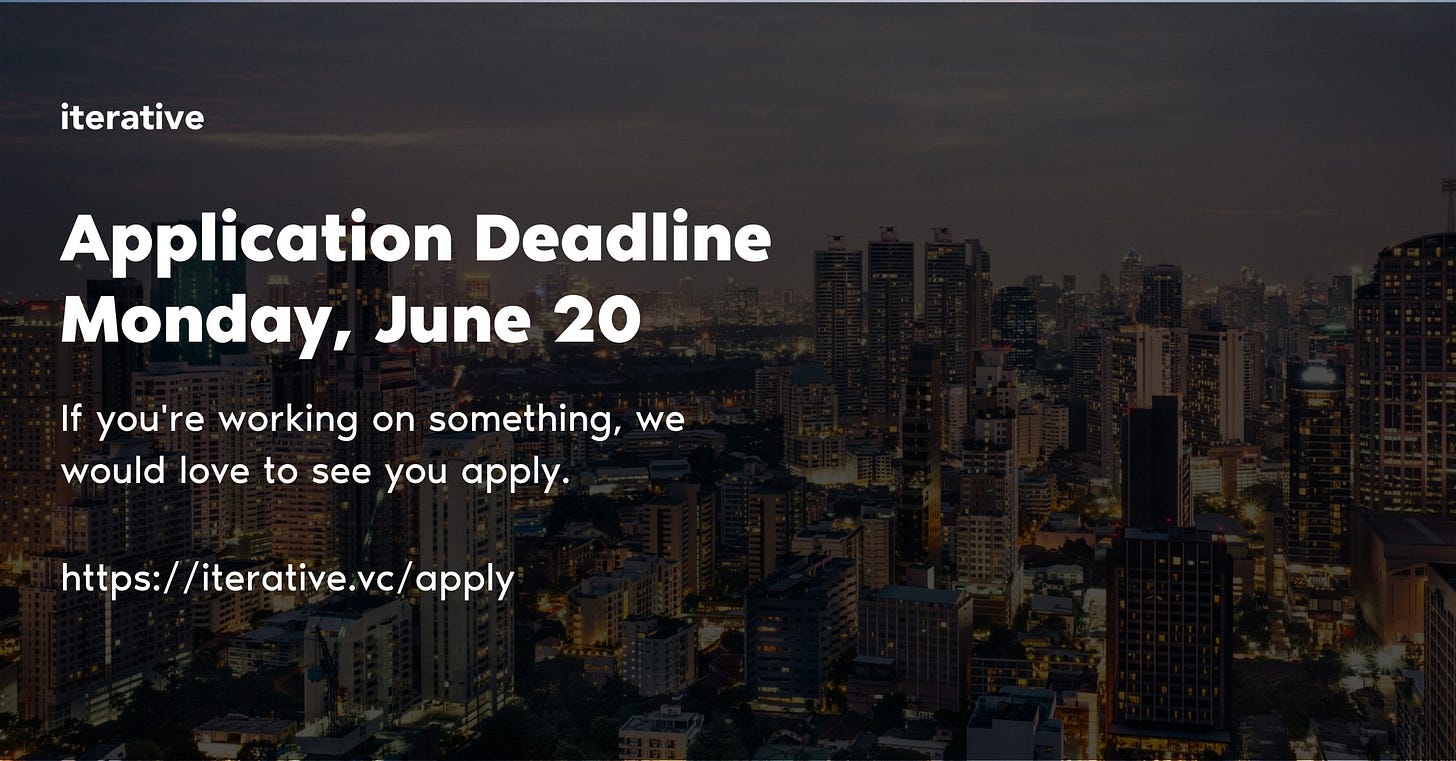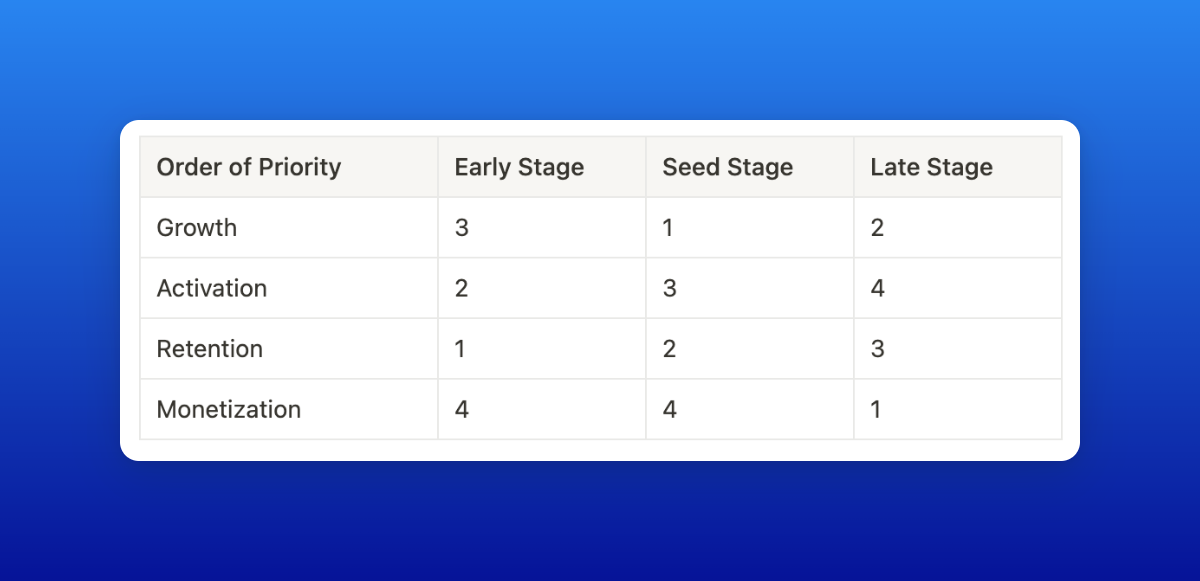What The Martian Can Teach You About Being a Founder in an Economic Downturn
S22 Application Deadline, Now Investing up to $500K, New Visiting Partners
Get to Work
Being a founder has never been easy but it will be even more challenging over the next 12 to 18 months. Early stage founders, especially those who haven’t found product market fit, will wonder if they should quit and get a stable job. Later stage founders will wonder if they should freeze hiring or do a round of layoffs to decrease their burn. Everyone will wonder if they should try to raise money at their previous valuation or lower.
Congratulations, you’re now a wartime founder 1.
Your job now is to stay alive. Stay alive despite the bad market and an even worse fundraising environment. Most importantly, stay alive despite constantly feeling like you’re going to die.
In those moments, I find myself thinking back to this scene from The Martian 2.
And specifically this part of the monologue.
At some point, everything’s gonna go south on you… everything’s going to go south and you’re going to say, this is it. This is how I end. Now you can either accept that, or you can get to work. That’s all it is. You just begin. You do the math. You solve one problem… and you solve the next one… and then the next. And If you solve enough problems, you get to come home.
This is the best advice I can give you. In those moments, when everything is going south on you, decide whether you’re going to accept what’s coming or you’re going to get to work. If you decide to get to work, do the math and start working the problem. Solve you’re most pressing problem first then the next most pressing and the next.
For Matt Damon’s character in the movie, it was air then food then getting back to Earth. Doing it any other order means he doesn’t make it.
Here’s what it means for startups.
Running out of money? Figure out how much time you have and how much time you need. The only way to get more time is to raise more money or spend less money. Make a plan for both. Evaluate which option gives you the best chance of survival. Execute.
Growing slowly? Figure out how quickly you need to grow in the next 3 months and set weekly targets. Growth doesn’t magically happen, it’s something you need to actively work on. Come up with a list of projects (we call them bets) you think will drive growth. Prioritize the list of projects based on how impactful you think they’ll be and the likelihood that they’ll succeed. Make a plan to work on those projects.
It’s going to suck. It will feel like you’re farming in your own shit. And I’m sorry, space didn’t care about Matt Damon and the world doesn’t care about your startup. You’ve gotta know that going in. Nothing is coming to save you. You have to save yourself.
Get to work.
Iterative Summer 2022
The application deadline for Iterative Summer 2022 is on Monday, 20 June and the batch starts on Monday, 4 July.
If you’re working on something, we would love to see you apply.
A few recent announcements about the upcoming batch.
Iterative Now Invests Up to $500,000
We increased the size of our investments from US $150,000 to be between US $150,000 and US $500,000. Other than the amount, there’s no changes to the investment.
Summer 2022 Visiting Partners
We announce the Visiting Partners for the upcoming Summer 2022 batch. They will be sharing their experience by hosting individual office hours, group office hours and helping companies get ready for demo day.
Guillaume Luccisano (Co-Founder of Triplebyte)
Shawn Low (Co-Founder Better.com)
Jessica Chao (Venture Partner at SLVC and Iterative)
Zaizhuang Cheng (Co-Founder of Spin)
We’re excited for our companies to work and learn from them.
Request for Startups Summer 2022
Before each batch, I write a request for startups with new ideas and spaces we're interested in investing in. Most of the ideas we invest in are not ideas we have previous thought of and therefore don't appear on these lists. If you're working on an idea that does or does not appear on this list, we'd love to see you apply.
Recent Posts
Goals and Metrics Scorecard
Curious how we help companies grow 5% to 7% every week? It starts with this template that we're now making publicly available.
We used it at our companies and is the first thing we have companies do during the batch. It's surprisingly simple but effective. Companies often continue using it after the batch.
Fundraising CRM
Fundraising is one of the most dreaded, brutal and misunderstood things a founder will do. To fundraise successfully, we recommend founders talk to as many investors in the shortest amount of time possible. In technical terms, you want to fundraise in parallel not serially. Not easy to do. It means being properly prepared and staying organized.
Our advice is to approach fundraising like sales. And like any good sales team, use a CRM, qualify leads and take notes. This is how we did it at our startups and how we advise startups to do it during our program.
Office Hours
I'm hosting open online office hours every Friday afternoon for early stage founders. They will be 20 minutes long and I'll help you with whatever your biggest challenge is.
How to Think About Product
I wrote a thread on how I think about product at a high level and how it changes depending on the stage your startup is in. All products can be broken down into growth, activation, retention and monetization.
Apologies for the term given there are actual wars being fought. Nothing we do is anything like that.
I’ve shown this clip at every batch graduation I can remember. Even before the economic downturn.



